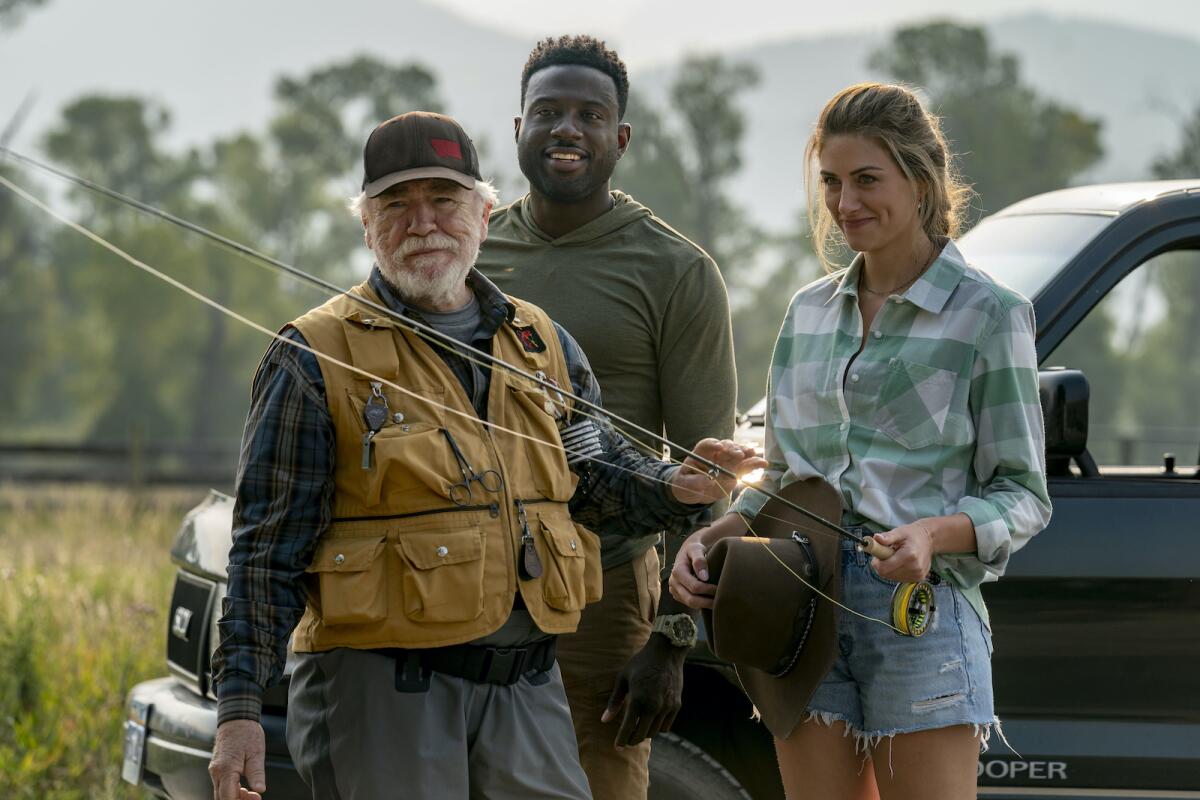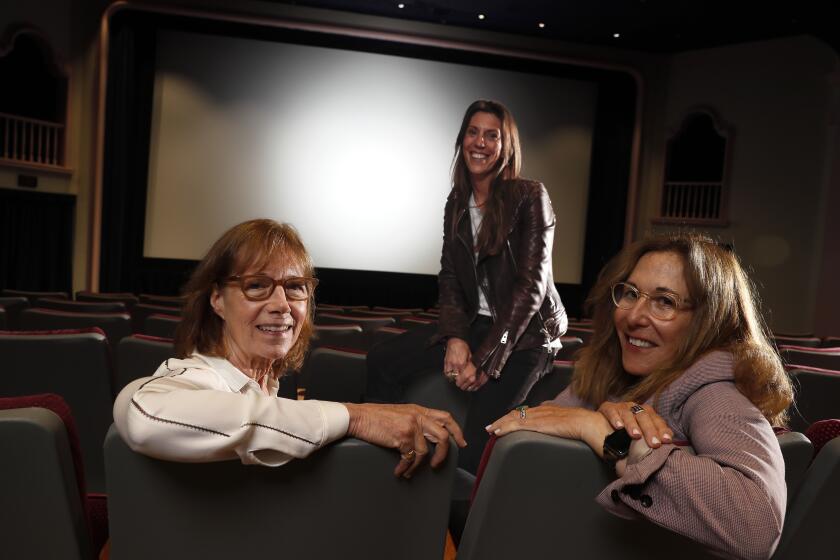‘Mending the Line’ casts a familiar but effective story about remedy and redemption

- Share via
From the post-Vietnam War classics “Coming Home,” “The Deer Hunter” and “Born on the Fourth of July,” to more contemporary films, including “The Hurt Locker,” “American Sniper” and “Thank You for Your Service,” there has been no shortage of movies involving veterans returning from battle plagued by such issues as post-traumatic stress disorder and survivor’s guilt.
The newest of these films, “Mending the Line,” directed by Joshua Caldwell, proves a touching and admirable, if overlong look at the topic that significantly echoes last year’s superior, Oscar-nominated entry, “Causeway.” How widely that Jennifer Lawrence-Brian Tyree Henry movie was seen may affect this PTSD drama’s viewing experience, though “Mending” distinguishes itself with its own fine lead performances, lived-in vibe and “A River Runs Through It”-style visual beauty.
Sinqua Walls, from the recent Amazon Prime thriller “Nanny” and Hulu’s “White Men Can’t Jump” remake, confirms his standing here as a solid, charismatic presence playing John Colter, a soldier who returns from Afghanistan to a fellow Marine’s Montana hometown to heal — both physically and emotionally — in a local Veterans Affairs hospital. But the firm and cautious Dr. Burke (a nice turn by Patricia Heaton) feels Colter has a long way to go before being approved for reenlistment, sending him down an angry path of pity and self-destruction.
L.A.’s reopened Vidiots, both a theater and video store, hopes to inject a sense of shared commitment and community into the local film scene.
A longer-term patient of Dr. Burke’s, the grouchy, 70ish, Vietnam War vet, Ike Fletcher (Brian Cox, hot off the final season of “Succession”), has his own raft of unresolved struggles that has led to alcoholism, isolation and a deep estrangement from his family. This ex-Marine’s sole pleasure in life, fly fishing, is threatened after one too many stream-side accidents force the doctor to tell Ike that he can no longer fish alone. Though the stubborn angler doesn’t take the news well, he recruits his old fishing buddy and fly-shop owner, Harrison (an enjoyable Wes Studi), to join him. But Harrison’s quickly sidelined by a foot injury.
In an attempt to solve two problems at once — and fully aware of the sport’s therapeutic powers — Dr. Burke orders the flailing Colter to pair up with Ike to teach him to fly fish. A war of wills and words ensues between the two tough, tortured men as they start their fragile journey. But, as with most on-screen odd couples, you know it’s just a matter of time before they find common ground. More than that, Ike and Colter end up forming an especially warm relationship that leads to a moving climactic payoff.
Then there’s Lucy (Perry Mattfeld), a onetime photographer who works in the town library and reads aloud to VA hospital patients. She’s a clearly haunted, detached soul, the reasons for which take a while to be revealed. Lucy eventually meets Colter when he comes to the library looking for books about fishing and a tentative friendship begins. But can Colter keep his demons at bay around her?
Although Lucy is a well-drawn character, her sadness and loss tip the film’s trauma scale and, at times, lend the picture a kind of airless quality. In addition, Lucy’s substantial screen time splits the story focus, causing her dynamic with Colter to narratively compete with his relationship with Ike. Not a terrible thing, but tricky to effectively balance.
In general, Stephen Camelio’s script, sensitive and convincing as it is, attempts to pack too much emotion, back story and metaphor into a relatively slender tale. The result is a two-hour film that would have benefited from a judicious trim, a quickened pace and less melodrama.
That said, the movie is worth a look for its lovely and magical fly-fishing sequences and stirring Big Sky vistas (shout out to cinematographer Eve Cohen), as well as its strong cast, authentic depictions, vital messaging and stirring excerpts from Steve Ramirez’s poetic, Texas-set fly-fishing book, “Casting Forward.”
As for the film’s title, it refers to the act of repositioning one’s fly line and leader on a moving current to best attract fish. But when it comes to this tale of remedy and redemption, “mending” is definitely the operative word.
'Mending the Line'
Rating: R, for language and some violent images
Running time: 2 hours, 2 minutes
Playing: Starts June 9 in general release
More to Read
Only good movies
Get the Indie Focus newsletter, Mark Olsen's weekly guide to the world of cinema.
You may occasionally receive promotional content from the Los Angeles Times.











